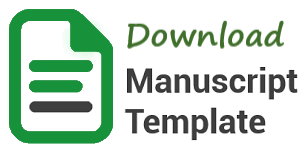Empowerment of Small Businesses through The Implementation of Qardhul Hasan Financing
Abstract
JEL Classification: D14, Q21, G51
Keywords
Article Metrics
Abstract view : 293 timesPDF view : 136 times
Full Text:
PDFReferences
Abduh, M., & Azmi Omar, M. (2012). Islamic banking and economic growth: the Indonesian experience. International Journal of Islamic and Middle Eastern Finance and Management, 5(1), 35–47. https://doi.org/10.1108/17538391211216811
Abidin, A. Z., Alwi, N. M., & Ariffin, N. M. (2011). A Case Study on the Implementation of Qardhul Hasan Concept as a Financing Product in Islamic Banks in Malaysia. International Journal of Economics, Management and Accounting, 19(3), 81–99. Retrieved from https://journals.iium.edu.my/enmjournal/index.php/enmj/article/view/201
Cahyono, Y., & Kurniawan, E. (2017). Perkembangan Perekonomian Syari’ah Pada Masyarakat Ponorogo (Analisis Faktor Internal dan Eksternal). Muaddib : Studi Kependidikan Dan Keislaman, 6(2), 147–161. https://doi.org/10.24269/muaddib.v6i2.281
Hassan, A. (2014). The challenge in poverty alleviation: Role of Islamic microfinance and social capital. Humanomics, 30(1), 76–90. https://doi.org/10.1108/H-10-2013-0068
Ismal, R. (2011). Islamic Banking in Indonesia : Lesson to be Learned. UNCTAD: Multi-Year Expert Meeting on Services, Development and Trade: The Regulatory and Institutional Dimension. Geneva, 6-8 April 2011. Retrieved from http://www.financialislam.com/uploads/3/8/5/3/3853592/cimem3_3rd_country_paper_indonesia1.pdf
Ismal, R. (2013). The Islamic gracious monetary instruments: a theoretical approach. Journal of Economic and Administrative Sciences, 29(1), 63–80. https://doi.org/10.1108/10264111311319231
Kadarningsih, A. (2017). Penyajian Akuntansi Qardhul Hasan Dalam Laporan Keuangan Perbankan Syariah. JESI (Jurnal Ekonomi Syariah Indonesia), 7(1), 32. https://doi.org/10.21927/jesi.2017.7(1).32-41
OJK. (2019). Sharia Banking Statistics. (Indonesia Financial Services Authority, Ed.). Jakarta: Otoritas Jasa Keuangan, Kemenkeu RI. Retrieved from https://www.ojk.go.id/id/kanal/syariah/data-dan-statistik/statistik-perbankan-syariah/Documents/Pages/Statistik-Perbankan-Syariah---Januari-2019/SPS Januari 2019.pdf
Purwadi, M. I. (2014). Al-Qardh dan Al-Qardhul Hasan sebagai Wujud Pelaksanaan Tanggung Jawab Sosial Perbankan Syariah. Jurnal Hukum IUS QUIA IUSTUM NO, 21(1), 24–42. https://doi.org/10.20885/iustum.vol21.iss1.art2
Sanrego, Y., & Antonio, M. (2015). The Effect of Social Capital on Loan Repayment Behavior of The Poor (A Study on Group Lending Model (GLM) Application In Islamic Microfinance Institution). Jurnal Ekonomi & Bisnis Indonesia (Fakultas Ekonomi Dan Bisnis Universitas Gadjah Mada), 28(2), 188–210. https://doi.org/10.22146/jieb.6222
Utomo, A. S., Maharani, N. K., & Octavio, D. Q. (2016). Financial Determinants of Qardhul Hasan Financing Growth: Evidence from Islamic Banks in Indonesia. Global Review of Islamic Economics and Business, 3(1), 38–45. https://doi.org/10.14421/grieb.2015.031-03
Refbacks
- There are currently no refbacks.




